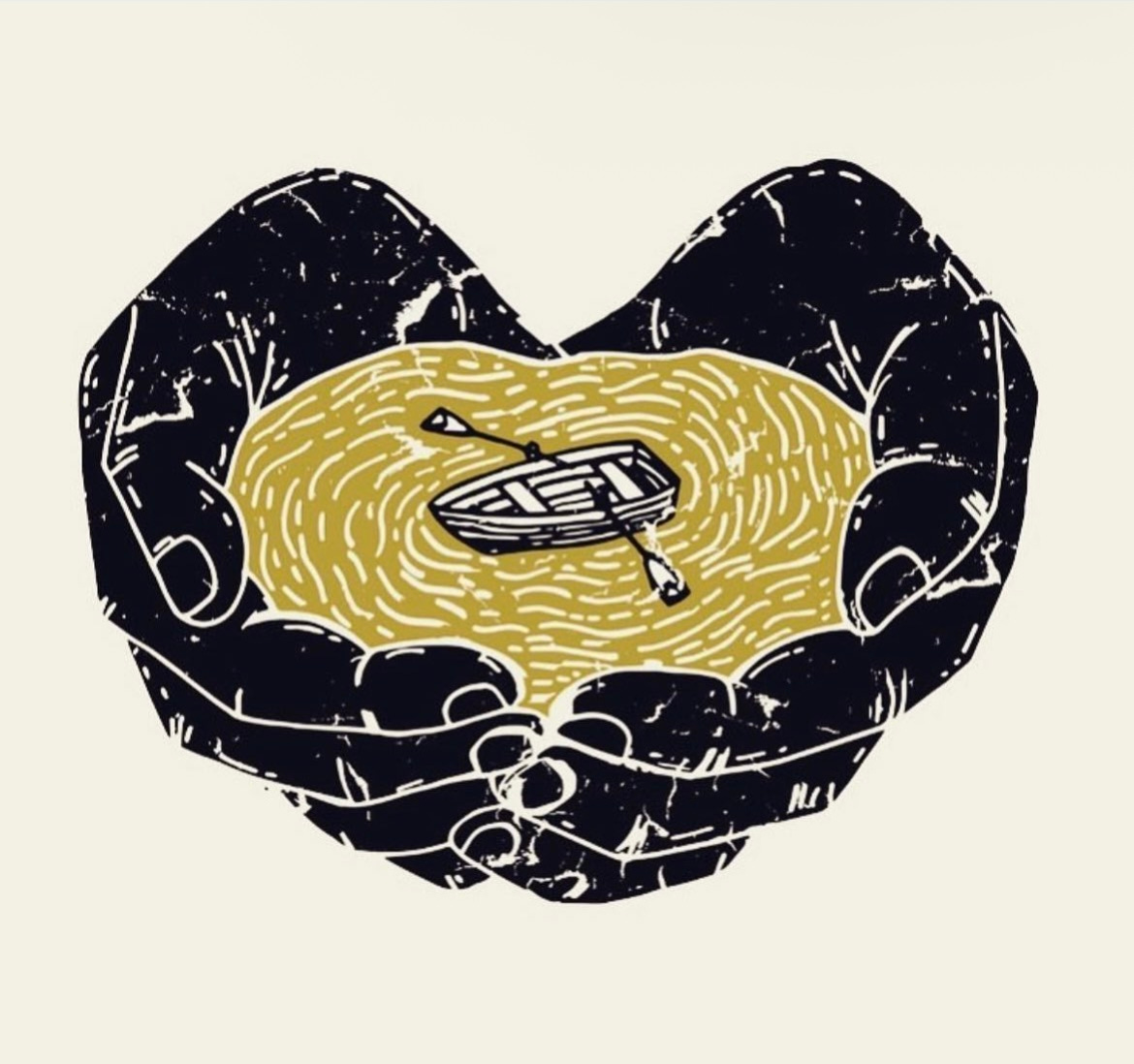This week we continue our discussion of forgiveness and the psalms.
The Soldiers that Pierced Him
The soldiers are not the principally guilty party in the crucifixion of Jesus. They did not decide that Jesus should be executed. In this way we can pity them: they are just doing their job.
But their job is not guiltless. There is still responsibility for the soldiers to bear for this tragedy. It is evil, and Jesus suffers directly at their hands. They are the ones physically wounding him. It is a concrete trauma, and helpful for us to think through how the full process of forgiveness is meant to work.
Kallistos Ware puts it like this:
If the process of forgiveness is to be brought to full completion, the evil has to be frankly admitted by both sides, by aggressor as well as the victim. It is true that, when we suffer wrong, we should endeavor to forgive the other immediately, without delay; not waiting for the other to acknowledge the wrong. It was precisely in this spirit that Jesus prayed at His crucifixion, “Forgive them, for they do not know what they are doing.” If, however, the forgiveness is to come to proper interpersonal fulfillment; more than this is required. Forgiveness needs to be accepted as well as offered; and the one who admits no guilt can accept no forgiveness.”1
Even while he was still on the cross Jesus forgave the soldiers. But as Ware points out, more than this is required if the process of forgiveness is to be brought to full completion. The proper fulfillment of forgiveness is both justice and reconciliation.
Jesus shows us here that we should forgive immediately and without delay. But for the proper fulfillment of forgiveness to take place the evil must be truthfully acknowledged by the perpetrator and the victim. If the soldiers cannot admit to any guilt, then they will not benefit from the forgiveness Jesus has given to them.
But what would it look like if they did?
What might the full process of forgiveness look like between Jesus and the soldiers who crucified him? What does Scripture suggest to us about what might/could happen between Jesus and the soldiers who wounded him?
To engage this question is not a flight of fancy. This is how Scripture works. It is suggestive by design and it invites us into the stories. Not to simply imagine the past, but to engage us in the present. This is how the resurrected Jesus speaks to us today, right now.
Scripture is like a Picasso painting. Compared to a realistic painting a Picasso has very few brush strokes and they are all suggestive. They don’t tell you the whole story. They invite you in to the blank space and ask you to imaginatively fill them in.
Here’s the question we are asking: What are the “brush strokes” Scripture provides for us regarding the soldiers?
In the Gospels Jesus prays from the cross that his Father will forgive the soldiers for what they’ve done. And Jesus’ prayers get answered. Robert Jenson says that this is a question posed by Jesus to the Father: Will you still be my Father now that I am tied up with these despicable brothers?2 In other words Jesus is saying to the Father, “If you are going to resurrect me, you will have to accept these soldiers with me because I want them to be forgiven.” The resurrection of Jesus is the assurance that the soldiers (and all humanity) have been forgiven.
But what other texts could we turn to that invite us to imagine the goodness of God in the way he deals with these soldiers?
Psalm 22: Dogs Surround Me
On the cross Jesus also quotes Psalm 22 (“My God, my God, why have you forsaken me?”). In one of Augustine’s sermons on this psalm he says that the passion of Christ is told to us in here as clearly as it is told to us in the gospels. Psalm 22 not only speaks of the passion of Christ, but we find the soldiers mentioned again:
12 Many bulls surround me; strong bulls of Bashan encircle me. 13 Roaring lions that tear their prey open their mouths wide against me 16 Dogs surround me, a pack of villains encircles me; they pierce my hands and my feet.
The “dogs” surrounding Jesus at his crucifixion are certainly not limited to the soldiers, but physically they are the representation of the evil system that has put Jesus on the cross. Augustine points out that dogs bark without understanding, without truth. No matter who passes by the yard, dogs bark. What these dogs have done they have done in ignorance. Or as Jesus put it, “They know not what they do.”
Paul in 1 Corinthians 2:8 emphasizes the same point regarding ignorance: “None of the rulers of this age understood it, for if they had, they would not have crucified the Lord of glory.”
Again, Paul is not only (or even primarily) speaking of the soldiers here, but they are certainly included. I don’t think it is much of a stretch to say that the soldiers are the most ignorant out of those responsible for Jesus’ crucifixion.
There is a deep truth here about all wounding. All wounds are inflicted without perfect knowledge. Of course some wounding is more knowledgeable, more intentional, more knowing, and so more despicable. Pilate, Herod, and the religious leaders are all more knowledgeable than the soldiers who pierced him, but it is still not perfect knowledge. If we knew the perfect truth of all things we would never wound others because the perfect truth of every situation is the will of God, which is Jesus Christ. To truly know something is to truly love it. “Perfect knowledge is perfect love.”3
Scripture has suggested these two things: 1) This is an ignorant act by the soldiers and 2) Jesus forgives them. But as Kallistos Ware said if the forgiveness is to come to it's proper completion, the soldiers will have to come to see the truth themselves and recognize what they’ve done as evil.
Psalm 22 offers us more on this. In verse 21 the psalmist says something unexpected. There is a turn.
19 But you, Lord, do not be far from me. You are my strength; come quickly to help me. 20 Deliver me from the sword, my precious life from the power of the dogs. 21 Rescue me from the mouth of the lions; save me from the horns of the wild oxen. 22 I will declare your name to my brothers and sisters; in the assembly I will praise you.
The psalmist prays to be delivered from the power of the dogs, but then says that he will proclaim the name of the Lord to his brothers and sisters. But who are Jesus’ brothers and sisters? Are the soldiers included here? It’s not much of a stretch to say they are. He has pleaded with his Father for the forgiveness and we know that he is dying for their sake, in order to bring many sons and daughters to repentance (Heb. 2:10).
But there’s still more in our psalm:
27 All the ends of the earth will remember and turn to the Lord,
And all the families of the gentiles will worship before You.
28 For the kingdom is the Lord’s
And He rules over the nations.
29 All the prosperous of the earth will eat and worship,
All those who go down to the dust will bow before Him,
Even he who cannot keep his soul alive.All the families of the gentiles, to the ends of the earth, will remember and turn to the Lord. He is the Lord who rules over all the nations, but he does so by forgiving them. The gentiles will worship the Lord, even those who have gone down to the dust, those who have died, will bow before him.
Every Eye Will See Him
When did this happen? Has this happened? This is an eschatological promise, a promise about the second coming of Christ. The book of Revelation supplies us with another brush stroke on the canvas:
Behold, He is coming with the clouds, and every eye will see Him, even those who pierced Him… (Rev. 1:7)
This is a very suggestive line. Does it mean that every person who is alive when Jesus returns will see him? But it says that even those who pierced him will see him.
This odd line seems to suggest that the second coming of Jesus is not simply the last event on the timeline of history, not merely one tick on the timeline like all other events. Rather, Jesus’s second coming is an event that will happen to the timeline of history. Jesus’ return will happen to every moment of the timeline. How else could the soldiers see him when he comes with the clouds?
In other words, Jesus second coming is not just the healing of the end of the timeline, but the healing of every moment on the timeline. It’s not like a fairytale that only ends happily ever after. The promise is that every one of our wounds—even those in our past—will be unmade and remade by the Lord Jesus.
In the way we experience time, it is true that if something has happened then it is in the past. It is over and done. Nothing can change that. But why would that apply to Christ? He is the creator of time—time is his creature! Time is not a condition Jesus has to live within, time lives in him. He is not bound by time in the way we experience it.
Our past is closed off to us. We can’t go back and change it. The soldiers cannot change the fact that they pierced him. But why would we think that God does not have access to all the past moments of suffering, trauma, and evil? The past is not closed off to God like it is to us.
This doesn’t simply mean that God is able to view what has happened in the past, but that he actually has the ability to enter all past events and act on them—to change them and make them be what they ought to have been all along.
This is, at least in part, what the book of Revelation means when it says that Jesus will wipe every tear from every eye. Not just that he will wipe away the tears from the eyes of those who are alive when he returns, but that when he comes he will wipe away every tear from every crying eye in every moment of history.
This is hard to even imagine. But Paul reminds us that “No eye has seen, no ear has heard, and no mind has imagined what God has in store for those that love Him” (1 Cor. 2:9).
If we can imagine what God might do to make things right, it is still not even close to what He has prepared for us.
This is the unmaking and remaking of all past traumas and wounds. God will come to every moment on the timeline of history and unmake and remake them according to his will. But he won’t do that without us.
What if in the end, when Christ returns, we are all allowed to work with God and with those who we have wronged and with those who have wronged us in a reworking of those past traumas? To bring justice and reconciliation. What if Jesus’ return is the opening of the possibility of the soldiers reworking what they should’ve done in that moment and making it true to God’s will?
I believe that in the end even Jesus’ wounds that he bears in his resurrected body will be undone and remade, by God—yes—but God with the soldiers who put the wounds into him.
For true forgiveness to be completely done, both the victim and the perpetrator have to see the truth of the evil that was done and then begin the work of making it right. And because of God’s infinite goodness he can make a way where there seems to be no way.
This is one of the greatest hopes that the gospel gives to us: We each will be given the opportunity to participate in the undoing of both the wounds we’ve received and the wounds we have inflicted. We will be given the opportunity to participate in God’s making all things new. That’s hope. That’s hope for the soldiers who pierced him, and that’s hope for you and me.
I’ve often heard pastors say things like this: “Your past has no future, but your present does.” What they mean is that what is done is done. You can’t change what has been done. You can only change yourself right now. And there’s some wisdom in that.
But the promise of the resurrection is that your past does have a future. With God’s help you will be able to forgive and be forgiven. You will have all your wounds unmade.4
Kallistos Ware, “Forgive Us…As We Forgive,” in Meditations of the Heart.
Lincoln Harvey, Jesus in the Trinity: A Beginner’s Guide to the Theology of Robert Jenson, p. 160.
Dietrich Bonhoeffer, Sermon on 1 Cor. 13:8–12, DBW Vol. 13, p. 388:
“Perfect understanding is perfect love…In order even to be able to see something, we need to love it. If we are indifferent toward a person or a thing, we will never understand it. We will always misunderstand a thing or a person we hate. Only a person whom we love can we fully know. We will know only as much about a person as we love in him or her.”
For more on this see this excellent conversation between Jordan Daniel Wood and Chris Green:












